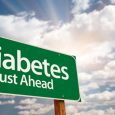Risks Of A Low Carb Diet
Low carbohydrate diets or ketogenic diets like the Atkins Diet have gained in popularity in recent years as a means to lose weight by putting your body in the metabolic state of ketosis. When you reduce your carbohydrate intake and increase your protein intake sharply your metabolism goes into a state of ketosis. This means that your body is feeding off the fat you already have stored in order to maintain its functions. This will help you lose weight, but by maintaining this nutritionally deficient diet you put yourself at risk of several serious health problems and many minor health problems such as headache, fatigue, muscle cramps, diarrhea, and dizziness.
Maintaining a metabolic state of ketosis, which is caused by consuming less than 10 grams of carbohydrates a day allows ketones to build up within your body. These put stress on your kidneys and can cause kidney stones, and even kidney failure. Less serious effects of this build-up are nausea, decreased appetite, and foul smelling breath. You can still decrease your carbohydrate intake and reduce your risk of health complications by consuming at least 100 grams of carbohydrates a day.
This high protein diet can also lead to a build-up of calcium in your urine and thus increase your chances of getting kidney stones, and it can also increase your risk of osteoporosis. This reduction in bone density makes your bones brittle and increases your risk of fractures.
In addition due to the higher levels of fat low carbohydrate dieters consume they are at a higher risk of elevating their cholesterol to dangerous levels. High cholesterol increases the chances of other serious health problems including heart disease and cancer. The higher fat intake can also increase the risk of heart attack and stroke. To reduce the chance of these health problems monitor your cholesterol to make sure that your total cholesterol remains in the ideal range below 200 mg/dL.
Cancer is also a higher concern for those participating in a low carbohydrate diet plan. The risk of being diagnosed with particular types of cancer is increased by the minimal amount of fiber consumed on this diet plan. By not consuming enough fiber you increase your risk of digestive or gastrointestinal cancers, like pancreatic and colon cancer, one of the most common types of cancer in the United States. Not consuming enough fiber can also lead to digestive issues like constipation.
All of these health problems are caused by nutritional deficiencies caused by the dietary restrictions imposed by a low carbohydrate diet. Diets such as the Atkins Diet limit the consumption of fruits, vegetables, and grains and make it difficult to meet the recommended daily intake of vitamins and minerals like folate, thiamin (1.5 mg/day), vitamin C (60 mg/day), vitamin A (5,000 IU/day), calcium (1,000 mg/day) and iron (18 mg/day), which are all nutrients that your body needs in order to maintain its normal daily functions. Alternately low carbohydrate dieters consume more than the recommended amounts of saturated fat and cholesterol daily.
Just because you are losing weight on a diet does not mean that it is good for your body, or even healthy. These nutritionally poor diet plans exponentially increase the adherers to life threatening health problems. Instead of these fad diets consider beginning a nutritionally balanced diet that will ensure your body gets all the nutrients it needs to function properly. Then pair that balanced diet with a diverse exercise routine of flexibility training, cardio and resistance training to help you reach your healthy weight, and then maintain it. This will decrease your risk of serious illnesses instead of increasing it.
Recommended Products for Low Carb Diet









